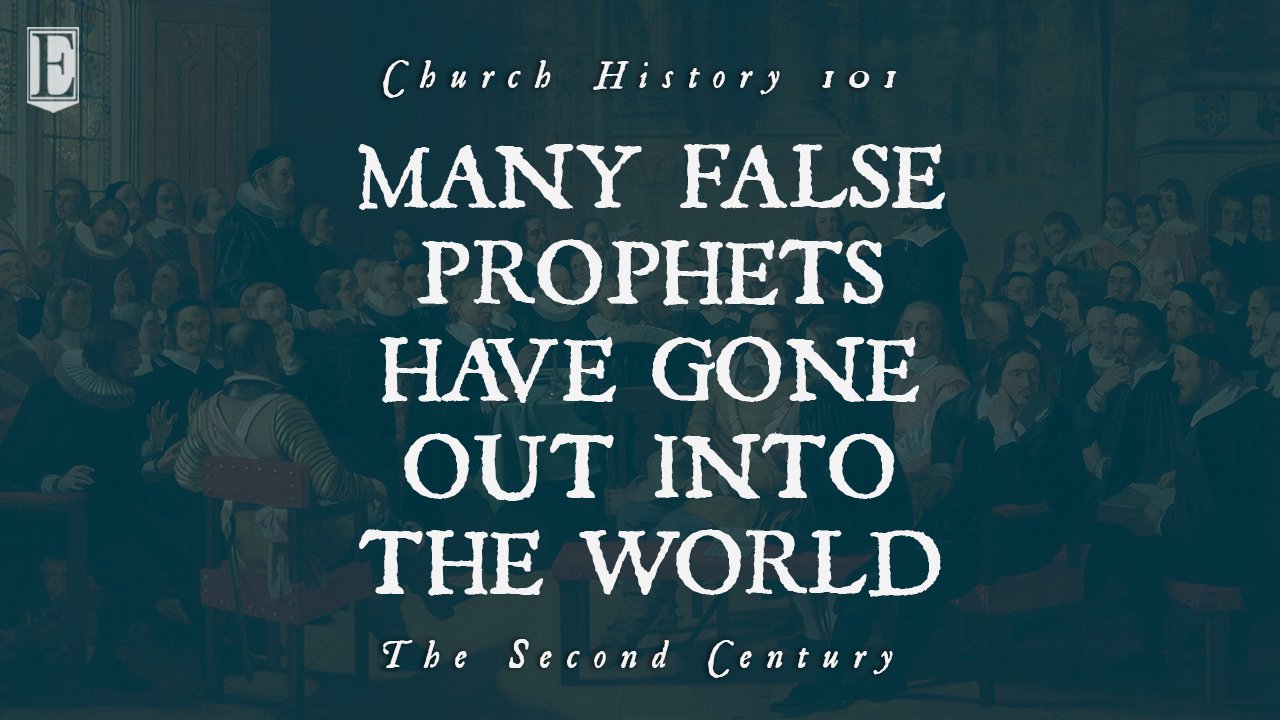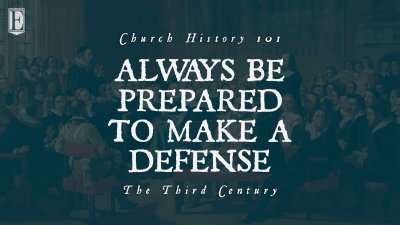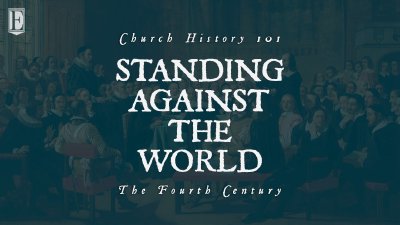RECAP: Question I. What is church history? Answer. Church history is the story of how Jesus has built his church for his own glory and his peoples’ good.
“I will build my church, and the gates of hell shall not prevail against it” (Matthew 16:18). Question II. Why should we learn church history? Answer. We should learn church history because it is the story of Jesus conquering the nations through his Gospel.
“[Christ] came out conquering, and to conquer” (Revelation 6:2).
Concerning the First Century, we have learned that, Christ came to save, the Apostles were sent out to preach, and then the early church suffered yet was sustained by Christ.
First Century memory verse: "Christ came out conquering, and to conquer” (Revelation 6:2).
First Century memory quote: “The blood of the martyrs is the seed of the church” (Tertullian).
THE SECOND CENTURY (100-200 A.D.)
I. The church was attacked by persecution, but they remained faithful to Jesus even unto death (Revelation 2:10). “Do not fear what you are about to suffer. . . Be faithful unto death, and I will give you the crown of life.”
II. The church was attacked by false teachers, but they remained faithful to Jesus by believing the Bible (1 John 4:1). “Beloved, do not believe every spirit, but test the spirits to see whether they are from God, for many false prophets have gone out into the world.”
The false teachers in the second century taught that the spiritual was good and the physical was bad.
False teachers taught that the Creation was evil, so the one true God could not have created it (Gnosticism).
False teachers also taught that Jesus did not become truly human, because, they said, that would mean God became something inherently evil (Docetism).
False teachers also taught that our bodies are evil, so we will not be resurrected with Jesus and like Jesus.
Here is the true teaching of the Bible:
God created the world and everything in it, and it was good.
Jesus became a true human being so he could save us from our sins.
We who believe in Christ will be resurrected from the dead with Jesus and like Jesus.
Because of these False Teachers, the church started writing Creeds, otherwise known as Confessions of Faith.
THE APOSTLES’ CREED: I believe in God, the Father almighty,
creator of heaven and earth.
I believe in Jesus Christ, his only Son, our Lord, who was conceived by the Holy Spirit and born of the virgin Mary.
He suffered under Pontius Pilate,
was crucified, died, and was buried;
he descended to hell. The third day he rose again from the dead. He ascended to heaven and is seated at the right hand of God the Father almighty. From there he will come to judge the living and the dead.
I believe in the Holy Spirit,
the holy catholic church, the communion of saints, the forgiveness of sins, the resurrection of the body, and the life everlasting. Amen.
CONCLUSION: Ignatius of Antioch (Syria). He said, “If Christ be not fully human and if he did not really die, why am I suffering for the gospel and prepared to die for it?” Ignatius was put on trial and condemned by the Roman Emperor for the crime of being a Christian. While being transported to Rome to be killed, he wrote to multiple churches, and said this: “I am writing to all the Churches and I enjoin all, that I am dying willingly for God's sake, if only you do not prevent it. I beg you, do not do me an untimely kindness. Allow me to be eaten by the beasts, which are my way of reaching to God. I am God's wheat, and I am to be ground by the teeth of wild beasts, so that I may become the pure bread of Christ.” Ignatius wanted to die for the Lord Jesus, and begged Christians not to try and break him free. He further said, “Let fire, or the cross, or wild beasts, or the breaking of my bones, or the cutting of me to pieces, or the shattering of my whole body, yea, all the tortures of the devil - let them all come upon me, only let me enjoy my God.” Ignatius was killed for being a Christian around the year 140 in Rome. Most likely he was eaten alive by lions. But he remained faithful to Jesus even unto death. Remember what Revelation 3:10 says: “Do not fear what you are about to suffer. . . Be faithful unto death, and I will give you the crown of life.” What happened as soon as Ignatius died? He saw Christ! And he has been happier and happier every day since.
In the second century, the Church was attacked by persecution and by false teachers, but they remained faithful to Jesus.
Second Century memory verse: “Beloved, do not believe every spirit, but test the spirits to see whether they are from God, for many false prophets have gone out into the world.” (1 John 4:1)
Second Century memory quote: “Let all persecutions come upon me, only let me enjoy my God” (Ignatius of Antioch).

MANY FALSE PROPHETS HAVE GONE OUT INTO THE WORLD: The Second Century
The Second Century
August 18, 2022 • Brett Baggett • 1 John 4:1
More from
Church History 101







